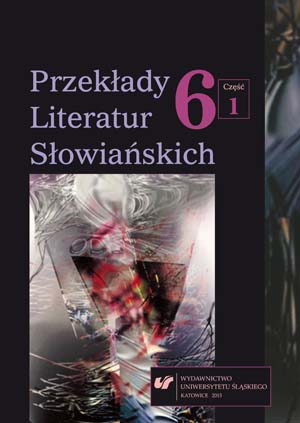Tłumacz jako instytucja — przypadek PRL i drugiej Jugosławii
The Translator as an institution — the case of The Polish People’s Republic and the second Yugoslavia
Author(s): Leszek MałczakSubject(s): Language and Literature Studies, Studies of Literature, Comparative Study of Literature, Polish Literature, Other Language Literature
Published by: Wydawnictwo Uniwersytetu Śląskiego
Keywords: institutions; translation literature; The Polish People’s Republic; the second Yugoslavia
Summary/Abstract: Translators are a part of institutionalized translation literature together with organizations of translators, literary critics, publishing houses, and magazines. They played a very important role in The Polish People’s Republic. The Polish Communist Party treated them as nest of oppositionists. The first organization of translators, Association of Polish Translators and Interpreters, was established after years of failed attempts in 1981, not accidentally at the time of the biggest popularity of Solidarity. Translation literature was a part of cultural contacts with abroad which were a part of the foreign policy of the state. This particular sphere was under control of the state. Political ideology was the most important factor which influenced cultural policy. Despite those extratextual constraints translators and the sphere of cultural contacts with abroad had a little bit more freedom than other cultural institutions because the political authority wanted to create a positive picture of the country, especially for the foreign receiver. The position of the translator in The Polish People’s Republic was close to The Horace Model of translation. He had to negotiate between a patron (in our case state) and two languages and cultures.
Journal: Przekłady Literatur Słowiańskich
- Issue Year: 6/2015
- Issue No: 1
- Page Range: 281-289
- Page Count: 9
- Language: Polish

